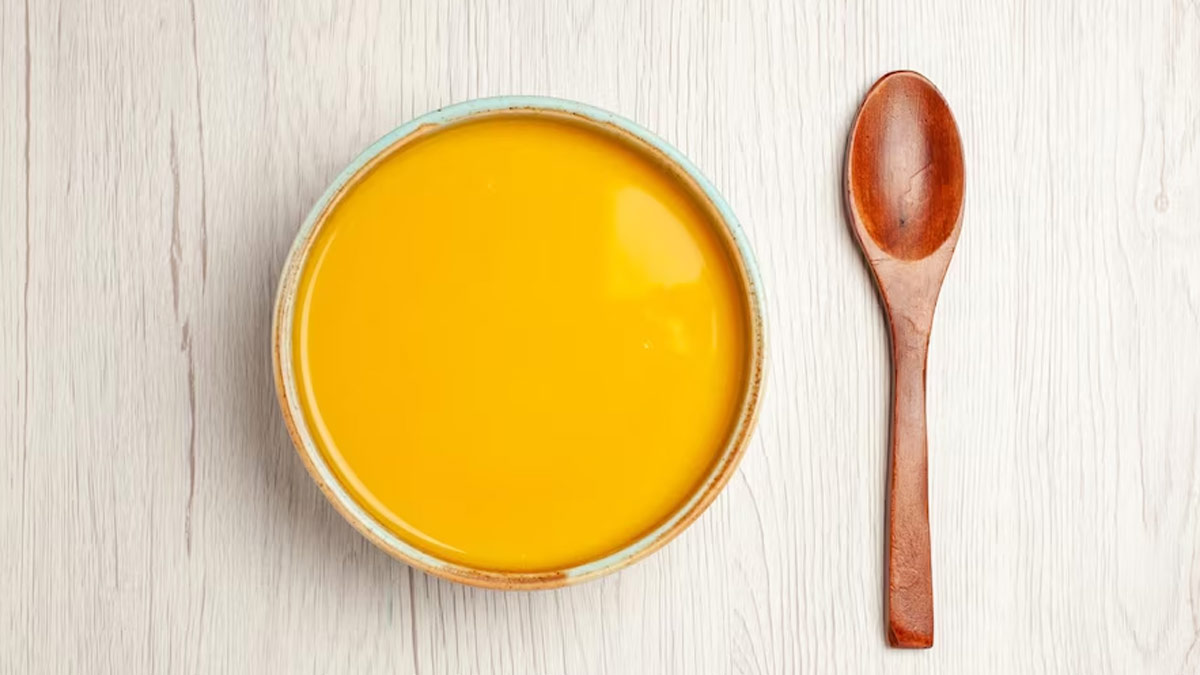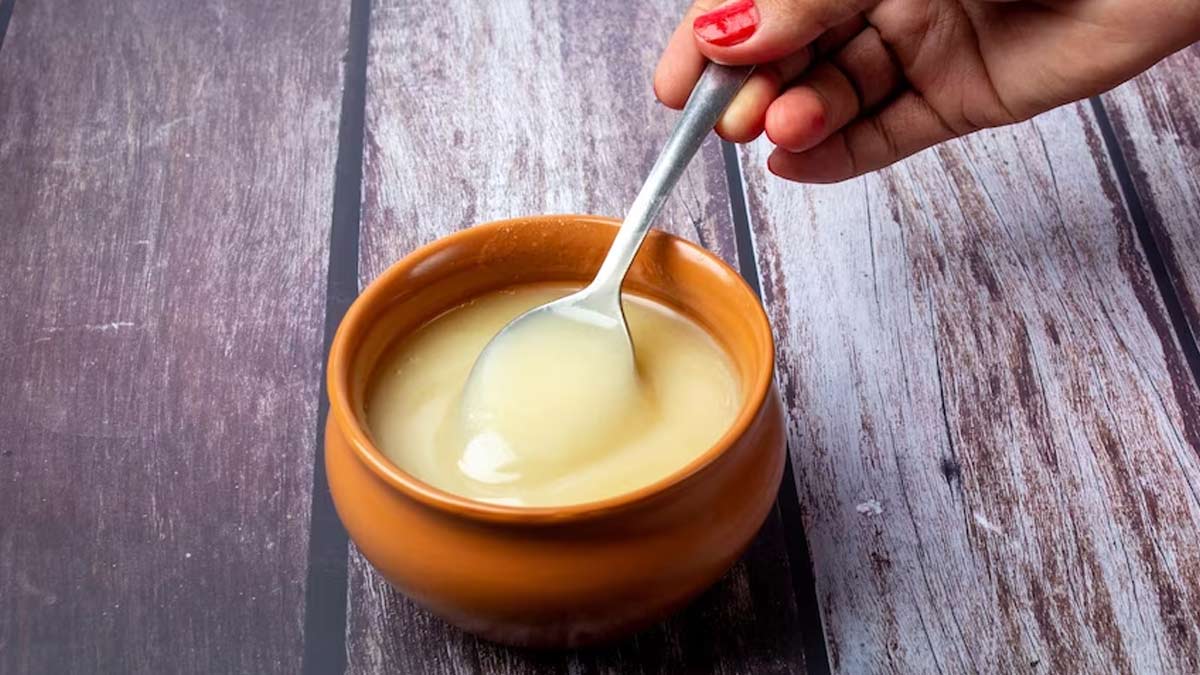
Ghee, also known as clarified butter, has been used as a therapeutic agent in ayurveda for thousands of years. It is commonly prepared from cow milk butter that has been processed with low heat until the water has evaporated, leaving only milk solids remaining. From adding it to curry to applying it to chapatis, ghee never misses its place in Indian cuisine. Packed with fat-soluble vitamins and wholesome fats, ghee's reputation as a powerhouse of goodness is well-deserved. But, what happens if you consume it on an empty stomach? We spoke to Sakshi Singh, Nutritionist, Founder, Dietetic Place, who shared the benefits of consuming ghee on an empty stomach.
Table of Content:-
Nutritional Value Of Ghee

Ghee is primarily composed of butterfat, water, milk solids, and impurities that are removed during the clarification process. It is highly concentrated in fat and energy, containing about 120 calories and 14 grams of fat per tablespoon. Also, ghee is a source of fat-soluble vitamins, such as vitamins A, E, and K, as well as short-chain fatty acids that might contribute to its potential health benefits.
Benefits Of Consuming Ghee Empty Stomach

Digestive Stimulation
One of the benefits of consuming ghee on an empty stomach is that it stimulates the digestive system. Singh said, “It helps to lubricate the walls of the intestines, promoting passage while preventing discomfort like abdominal pain, bloating, and constipation. Because of its laxative properties, ghee also aids in constipation alleviation by encouraging bowel movements.”
Drink it with warm water to decrease acidity within the digestive tract. This combination enhances the metabolism and absorption of essential nutrients within the small intestine, while also supporting the body's cellular healing and repair mechanisms.
Also Read: Ghee Vs Vegetable Oil- Which Is Good For Your Heart, An Insight By Dietitian Swati Bathwal
Aids In Weight Loss
Did you know eating ghee on an empty stomach can boost your metabolism and aid in weight loss? Singh added, “It contains medium-chain fatty acids that are easily metabolised by the body for energy, potentially aiding in weight management efforts. When taken on an empty stomach, these fatty acids can be readily absorbed and utilised, providing a natural energy boost to kickstart your day.”
Helps In Detoxification
Ghee also aids in removing toxins and unhealthy fats while boosting healthy cholesterol and gastrointestinal health. Singh informed, “It improves heart health by lowering bad cholesterol by 10- 20%, and omega-3 fatty acids aid in the removal of bad cholesterol.”

Strengthens Immune System
According to ayurveda, including ghee in your daily diet helps prevent recurring infections and boost immunity. Ghee has this impact because it contains antioxidants, which improve gut health by aiding in the absorption of fat-soluble vitamins and minerals.
Promotes Skin And Hair Health
If you are looking to enhance your skin and hair health, consuming ghee on an empty stomach can be a good option. According to the study published in Cureus, ghee is beneficial for treating skin-related issues due to its antioxidant, antibacterial, anti-inflammatory, and antiseptic characteristics.
Singh said, “Due to the presence of calcium, healthy fats, vitamins A, D, E and K, it helps in hydrating and moisturising your skin. Also, it helps in reducing wrinkles and acne. In addition, it helps promote hair health by nourishing the hair follicles, strengthening the roots and controlling dandruff.”
Also Read: Beauty Care At Home With Ghee: Hair And Skin Benefits Of Ghee
Moderation and Individuality

Singh informed, “As with any dietary choice, moderation and individuality are key. If you enjoy the taste of ghee or find it to be a part of your cultural cuisine, consuming it in moderation as part of a balanced meal plan is likely to be more beneficial than fixating on consuming it on an empty stomach. Moreover, individual responses to foods can vary widely, so what works for one person may not work the same way for another.”
Consultation and Balanced Eating
Before making significant changes to your diet, it's always a good idea to consult with a registered dietitian, nutritionist, or healthcare professional. These experts can provide personalised guidance based on your unique health goals, dietary preferences, and medical history.
[Disclaimer: This article contains information shared by a registered healthcare professional and is for informational purposes only. Hence, we advise you to consult with your expert before adding it to your diet to avoid complications.]
Also watch this video
How we keep this article up to date:
We work with experts and keep a close eye on the latest in health and wellness. Whenever there is a new research or helpful information, we update our articles with accurate and useful advice.
Current Version